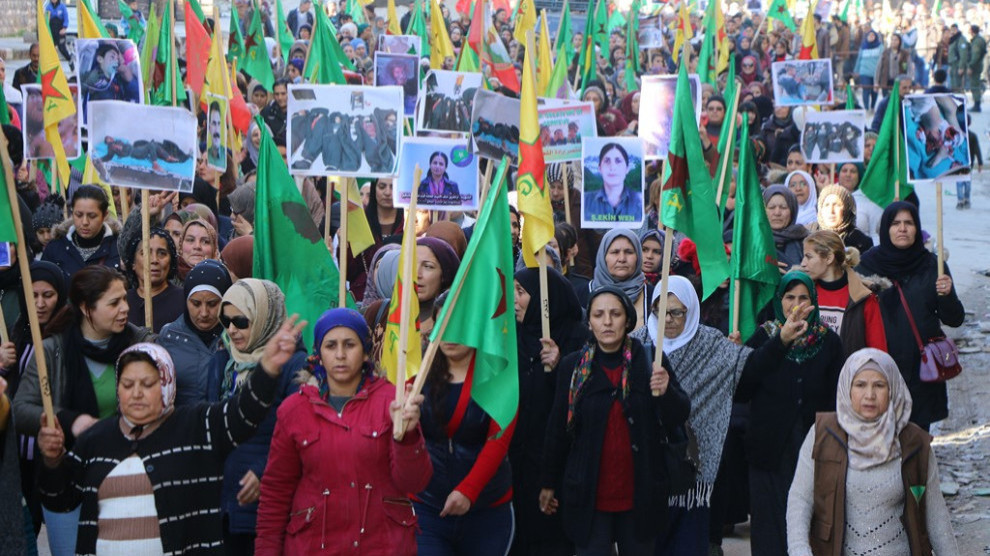The Treaty of Lausanne and invasion
The Treaty of Lausanne has shaped the Kurdish struggle – from the Dersim rebellion of 1936 to the Turkish forces that are currently attacking Idlib and preparing for an invasion of Kobanê.
The Treaty of Lausanne has shaped the Kurdish struggle – from the Dersim rebellion of 1936 to the Turkish forces that are currently attacking Idlib and preparing for an invasion of Kobanê.

Almost 100 years ago the Treaty of Lausanne was signed by the major colonial forces of the time. Britain and France cut slices of the world, creating borders and supporting the formation of new states. In 1923 the Treaty was signed, ending the Ottoman Empire, and creating the Republic of Turkey with different borders from the empire. In 2023 Erdogan intends to change the conditions of the Treaty. The AKP government wants to regain what the Ottoman Empire lost – territories. To do this, they want to occupy the so-called “safe zone” from Afrîn in Rojava to Kirkuk in Bashur, expecting a change of conditions to be possible in 2023. The current invasion and war are to ethnically cleanse the area, assimilating it into the Turkish nation state.
The Treaty of Lausanne has shaped the Kurdish struggle – from the Dersim rebellion of 1936 to the Turkish forces that are currently attacking Idlib and preparing for an invasion of Kobanê.
The mindset of imperialism and colonialism is one of linearity, of extraction, and of hegemonic order that has led us to climate catastrophe. It can be seen everywhere, such as in the physical monocultures of wheat that destroy indigenous biodiversity and turns rich soil into desert. It is the same mindset that has attempted to assimilate cultures across the world and replace them with a single order; such as in the Turkification process across the region that has been ongoing for generations and led to innumerable massacres, displacement and domination of culture and life. This system focuses on binaries – produce vs waste, land cut by borders, identity that can be procured as a national vs outsider, and concepts of good vs evil. To have an ecological mindset is to have a cyclical and horizontal perspective that breaks down these dichotomies; Jineolojî has advanced this understanding and can give us insight into how to build a liberatory vision and knowledge.
There is an alternative vision held in the hearts of dissidents across the world. The global system is in crisis. Resistance has never ended – the revolutionaries who today are planting seeds and defending society have inherited their place in the history of struggle by those who came before them. We can see cycles of relative calm and fierce conflict; the occupation of the 120km area of the “safe zone” is intensifying, and the life that is based on freedom is continuously emerging through struggle.
Source: Make Rojava Green Again